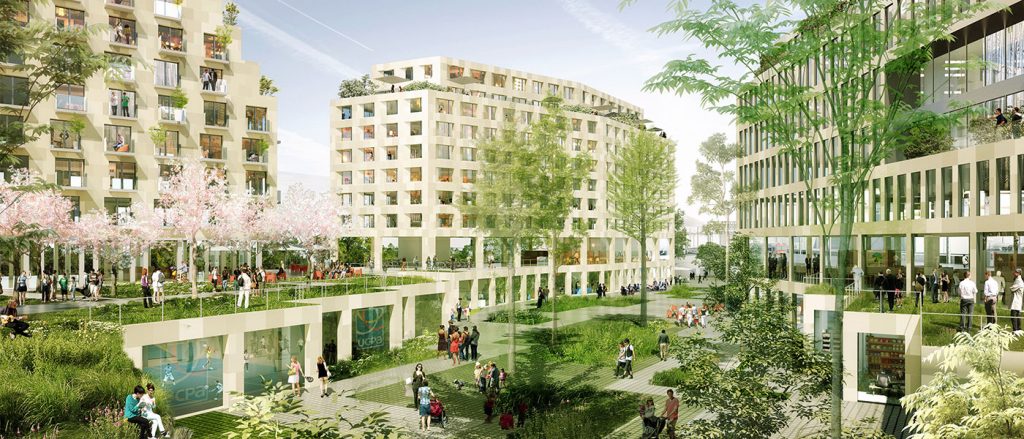
The Bouygues group recognises the impact that its infrastructure projects can have on biodiversity and has been working for several years to limit its environmental footprint by providing solutions for safeguarding ecosystems and combating the loss of greenfield sites.
Action Plan
Bouygues Construction’s action plan
In order to make progress and consider biodiversity more fully in its projects, in both the design and the construction phases, Bouygues Construction is framing its new biodiversity policy – which started to be rolled out in 2021 – around three areas of action, adapted to each entity depending on its specific issues and the nature of its business:
- raising awareness along the value chain, from clients, employees and subcontractors to business partners;
- making biodiversity second nature across all projects (adjustment of actions to project type and local setting);
- being the driving force whenever Bouygues Construction is doing the designing, by integrating biodiversity-friendly solutions into building design such as green roofs and methods to reduce light pollution.
Bouygues Immobilier’s action plan
For many years Bouygues Immobilier has been committed to protecting biodiversity and integrating wildlife into its urban development projects. It has therefore set a vision for 2025, based on four key priorities:
- reduce urban sprawl, by building inside towns and cities where possible;
- improve permeability of ground surfaces;
- use surfaces that help biodiversity;
- support end-customers in managing their green spaces ecologically and economically – if possible with local participation.
The BiodiverCity label
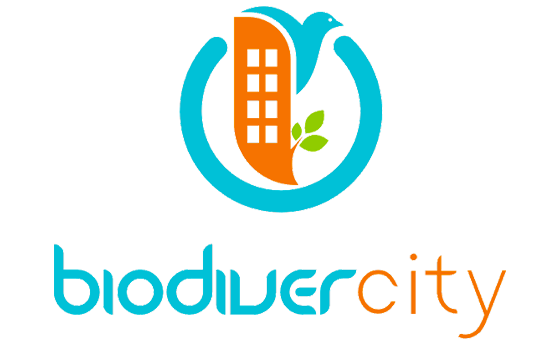
Bouygues Construction helped create BiodiverCity, the first international label awarded to construction and renovation projects that factor in biodiversity. The initiative brings together builders, developers, users and other industry partners.
Beginning in 2014, Bouygues Immobilier was one of the first property developers to roll out the BiodiverCity Construction label, subsequently applying its criteria to entire neighbourhoods.
To date, 15 projects representing 8,774 housing units already carry the label or are in the process of applying for it. Bouygues Immobilier has also set a target of making 25% of its projects (by surface area) biodiversity-positive by 2025.
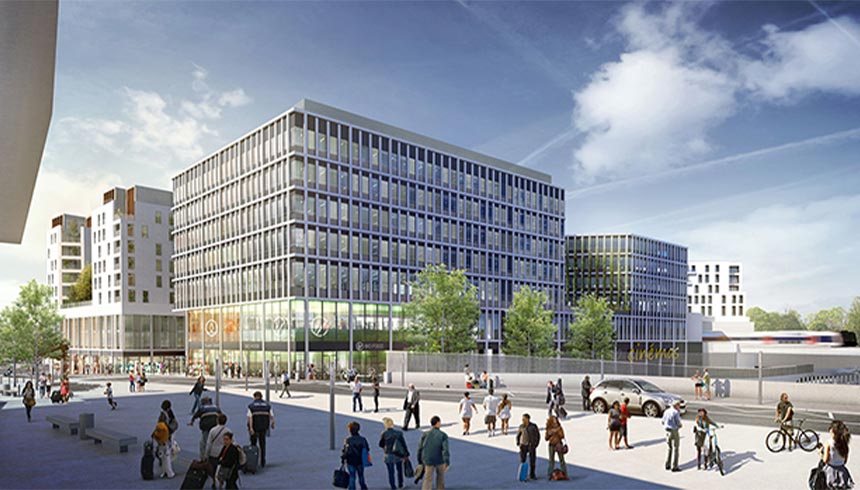
The multimedia, sporting and cultural facilities are intended to bring local residents, workers and students closer together.
© Nanterre Cœur Université
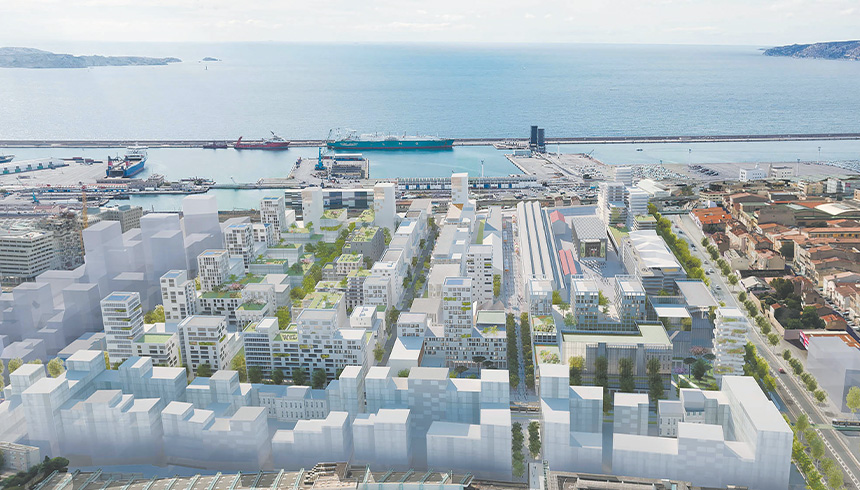
An eco-neighbourhood at the heart of the new Marseille.
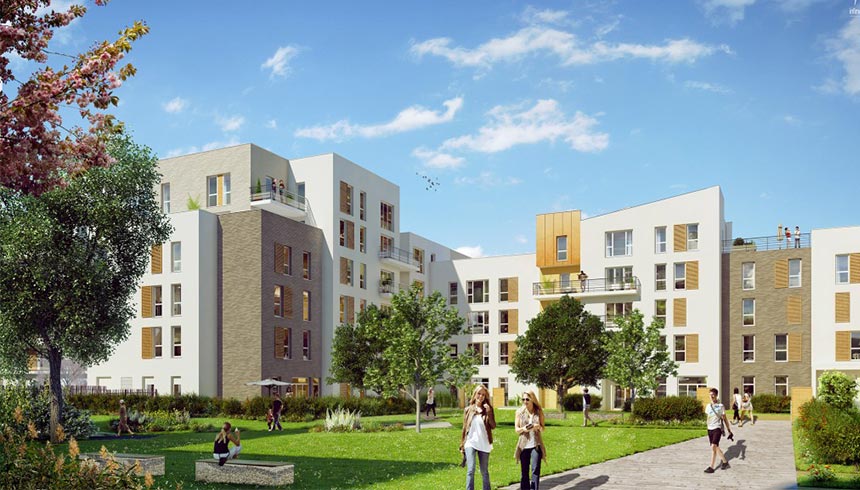
In this eco-neighbourhood in Créteil, near Paris, the buildings blend in harmoniously with their natural environment where biodiversity is preserved.
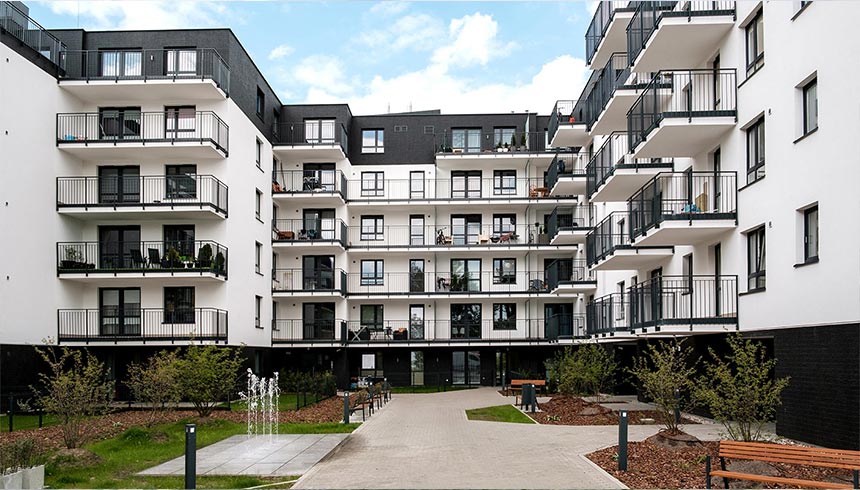
The first BiodiverCity label project handed over in Poland
15
Bouygues Immobilier projects
9,000
(equating to nearly) housing units received or were in the process of receiving the BiodiverCity label in 2020.
31.4%
of Bouygues Construction’s projects took measures in favour of biodiversity in 2020.
A voluntary commitment in favour of biodiversity
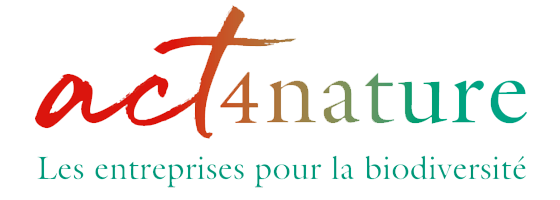
Act4Nature
Bouygues Construction, Bouygues Immobilier and TF1, since 2020, have joined other businesses in pledging to preserve biodiversity by signing up to the Act4Nature alliance.
Bouygues Immobilier has now also pledged to consult an environmental scientist for all its developments and is committed to systematically integrating nature-based experiences in all its outdoor landscaping projects.
Director of Sustainable development and CSR for Bouygues Immobilier

The Monaco offshore extension project by Bouygues Travaux Publics
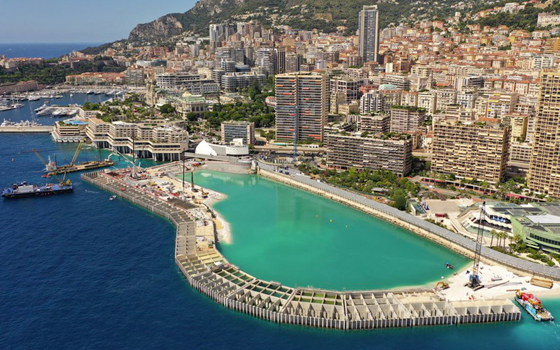
The project to reclaim six hectares of land from the sea between two protected marine nature reserves (the Larvotto marine nature reserve and the Spélugues trench) paid special attention to the preservation of biodiversity on the site and to the ecological impacts generated by the works. Bouygues Travaux Publics and its partners carried out an environmental impact study before starting in order to identify the ecological challenges stemming from the works and to design tailored solutions. To avoid disturbance to the natural environment, 518 m2 of posidonia beds were moved to underwater planters located at the foot of the Fontvielle breakwater. Eight riprap blocks, colonised by lithophyllum byssoides algae were also relocated. All this vegetation is monitored regularly to ensure that it adapts well to its new surroundings.
Bouygues Immobilier’s biodiversity calculator
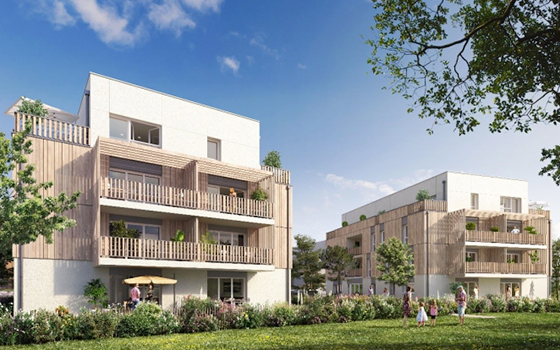
Bouygues Immobilier created a “biodiversity calculator” in 2021 in order to rate all its developments. The tool is used to motivate project design teams to increase the amount of surface area conducive to biodiversity. If a project contains more nature post-development than it did in its initial state, it is rated “biodiversity-positive”. The aim is to have 25% of developments biodiversity-positive by 2025.
Quarries programme
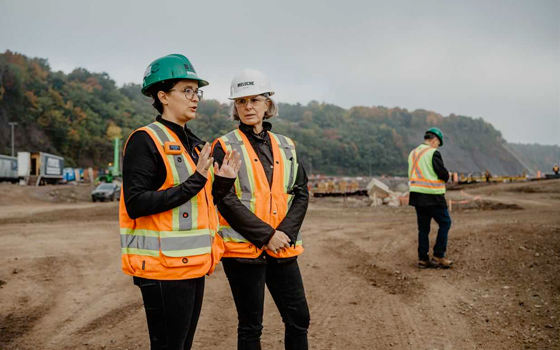
This programme consists of developing and nurturing ecological niches on Colas’ extraction sites by preserving noteworthy species and setting up beehives. In 2020, 170 sites (covering 44% of the sales before inter-company eliminations of Colas’ aggregates production sites) launched one or more scientifically supported initiatives to promote biodiversity and raise awareness amongst employees and local residents.
Colas Génie Ecologique
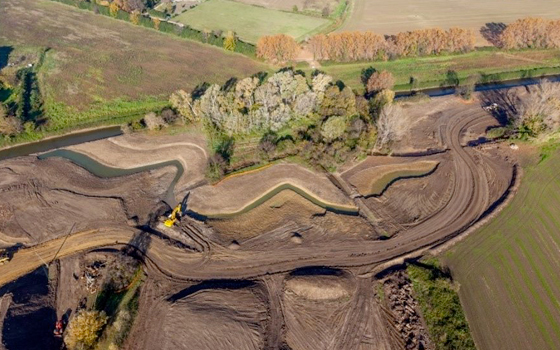
Colas Génie Écologique (environmental engineering) offers practical ecosystem protection solutions such as rewilding and restoring waterways, and conducting works in sensitive habitats. For example, in 2016, Colas rehabilitated the Vistre, a coastal river in southern France. Since then, tangible benefits on several fronts have been observed, such as improved water quality and the return of several local species.
Environmentally-aware programming on Ushuaïa TV
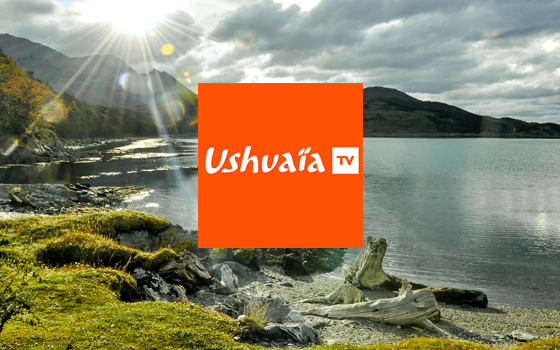
Ushuaïa TV, TF1’s theme television channel, founded in 2005, is the only French broadcaster to focus its programming schedule on the protection of the planet. There are documentaries, infotainment and films for all ages that raise awareness about biodiversity issues. In September 2021, for the World Conservation Congress in Marseille, Ushuaïa TV aired a special series of programmes on the protection of biodiversity and ecosystems for its viewers.
> Find out more